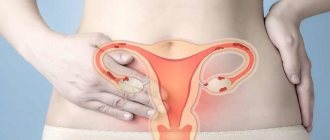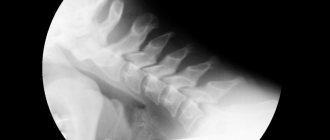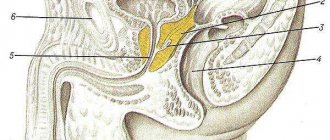In the article we will look at what symptoms such as weakness, dizziness, drowsiness and nausea mean.
Almost everyone has experienced dizziness when moving suddenly or changing body position. But if the symptom recurs regularly, is accompanied by weakness, and at the same time drowsiness and, especially, a feeling of nausea, then all these signs indicate a serious problem. Moreover, this probably means the same disease, which makes diagnosis much easier.
Main causes of symptoms
Sometimes weakness, dizziness, drowsiness, nausea are not symptoms of some disease, but a consequence of very strong stress or hunger. True, in most situations, their occurrence determines the presence of severe damage to the body, which requires immediate treatment. Other signs or tests prescribed by a doctor can help differentiate physiological problems from pathologies.
Let's look at the main possible causes of nausea, weakness, dizziness and drowsiness.
Description of the disease
A similar condition, when dizziness, nausea and disorientation in space are observed, leads to serious consequences, as they become a provocateur of fainting. A person may lose consciousness or be injured if they fall.
A change in coordination is not associated with the work of muscle tissue, but dizziness with the appearance of vomiting, indicating the presence of serious pathologies that require immediate treatment.
It begins to seem to a person that all objects are spinning and rotating, which leads to a feeling of nausea. That is why this condition received this name. The duration of the attack depends on various factors and ranges from 2-5 seconds to several hours.
Helpful information
Regular whirling of varying intensity in some cases causes the development of neurological abnormalities and psychological problems.
There may be several factors that can increase the likelihood of unpleasant signs appearing. These can be both pathologies of various types and physiological factors. In medicine, sudden severe dizziness, a feeling of impending vomiting, is called “orthostatic collapse.”
Use of hormonal medications
For the normal functioning of the body, the balanced functioning of all its systems is required. An imbalance of substances, especially hormonal ones, can lead to extremely unpleasant consequences, for example, nausea with dizziness and drowsiness. Hormonal problems can be caused by various reasons, and, in addition, by heavy stress and an unhealthy diet, as well as by taking contraceptive medications and the patient’s bad habits.
Against the background of all this, in addition to weakness, dizziness, drowsiness and nausea, symptoms may occur in the form of weight gain, sudden changes in mood and even vomiting. And to eliminate the symptoms and the problem that caused them, as a rule, a two- or three-week course of therapy with hormonal drugs is required.
Oxygen starvation of the brain
What else could these symptoms mean? Dizziness, weakness, drowsiness and nausea are quite unpleasant.
Among the reasons for their occurrence can be found a lack of oxygen to the brain, which appears as a result of:
- Problems with blood circulation and the functioning of the cardiac and vascular system.
- Shock after a stressful experience.
- Lack of oxygen in the air.
- Poisoning with harmful substances.
Only a doctor can identify the specific cause of such fasting. To do this, tests are prescribed and symptoms of other problems in the body are studied in detail. These include increased heart rate along with discoloration of the skin, which takes on a pale hue.
The causes of nausea, weakness, dizziness and drowsiness should be determined by a doctor.
Damage to the vestibular apparatus
Damage to the vestibular apparatus is always accompanied by a feeling of vertigo and moderate nausea.
Among the reasons for which it is worth highlighting:
- Physical trauma associated with a concussion, temporal bone fracture or cervical injury, which very often negatively affects the functioning of the vestibular apparatus.
- Multiple sclerosis , which over time affects the functioning of the vestibule due to problems with blood supply.
- Congenital pathologies. Many patients who complain of dizziness have congenital problems that cause the vestibular system to malfunction under increased stress. Such loads can be: rotation of the head or the whole body, driving a car or other vehicle, active movement of surrounding objects. Most often, such a pathology cannot be cured; for some it goes away over the years, and for others they suffer all their lives. The only solution is drugs that reduce the symptoms of dizziness, which allow you to travel long distances without consequences.
Development of orthostatic collapse
The main cause of this disease is a sharp decrease in pressure against the background of rapid changes in the body, for example, when quickly getting out of bed. Or, conversely, if the patient lays down very quickly. Prolonged stay in the same position also leads to orthostatic collapse. And dehydration, along with intoxication, bad habits such as drinking alcohol, hunger, and some medications are also considered contributing factors.
This problem is also encountered in elderly patients, and, in addition, in women trying to lose weight through the use of diuretics and laxatives. And in addition to dizziness and nausea, patients may also suffer from fainting and significant hearing loss. The last sign is especially dangerous, since if a patient falls, he may accidentally injure himself.
Taking medications
The desire to sleep and dizziness are provoked by:
- painkillers;
- neuroleptics;
- hormonal agents;
- drugs with a sedative effect;
- drugs for allergies and arterial hypertension;
- agents to reduce uric acid levels.
If the patient suffers from side effects of the medication, the doctor can select an analogue or change the dosage.
Development of anemia and hypoglycemia
In patients suffering from anemia, weakness, dizziness, drowsiness, and nausea may occur for the same reasons as in the case of oxygen deficiency in the brain. And sometimes these symptoms arise as a result of hypotension accompanying this disease, that is, a sharp decrease in pressure. The causes can be clarified using additional symptoms of anemia, namely, shortness of breath will be present along with a lack of appetite and yellowed skin.
With glycemia, which is a decrease in glucose levels, nausea and dizziness can be directly related to the starvation of brain cells. Energy deficiency from carbohydrates, proteins and fats can also result in trembling, palpitations and excessive sweating. And among the basic causes of glycemia should be fasting (for example, diet or religious fasting) along with heavy mental and physical work, and, in addition, an overdose of insulin in patients with diabetes or insulinoma. Sometimes glycemia occurs due to alcohol consumption.
What can nausea, weakness, dizziness, drowsiness and diarrhea mean?
Food poisoning
Such symptoms may be caused by the patient consuming low-quality products (for example, missing dairy products). This will lead to intoxication of the body. Additional symptoms include vomiting with diarrhea and nausea. And sometimes also dry mucous membranes with lack of appetite.
The feeling of nausea and vomiting does not go away as long as the poison acts on the body. A person’s head may become very dizzy, and a feeling of heaviness in the stomach will indicate the presence of congestion. Over time, the severity of symptoms decreases, especially if the patient takes enterosorbents. Vomiting may continue for some time, even after the stomach is completely empty. Sometimes blood is observed in the vomit, indicating an inflammatory process.
Mental disorders
Clinical manifestations of mental illnesses: partial or temporary memory loss, apathy, headaches may occur.
Depression
Severe drowsiness and decreased physical and mental activity may indicate depression. Additional symptoms include headaches and heart pain. Psychotherapists and neurologists will help to cope with this condition. By taking medications, patients consistently recover from depression.
Cerebral circulation failure
One of the most dangerous causes of dizziness and nausea is a problem with cerebral circulation, which often occurs due to hypertension or head injuries. It is necessary to take measures against this disease at a very early stage, and it is best not just to see a doctor, but to call an ambulance.
A patient’s untimely response to such a problem can lead to a stroke. It is worth saying that recently more and more people who have not reached old age are becoming its victims. And in order to reduce the possibility of this problem occurring, you need to periodically undergo a medical examination, and, in addition, be less nervous. This is especially true for patients at risk, which include people who are constantly exposed to stress, smokers, have diabetes and are in the age group over forty-five years.
Pathologies of the endocrine system
If nausea, which is accompanied by drowsiness and dizziness, occurs along with thirst, urination or itching of the skin, then the cause may be that the patient has diabetes. If you suspect this disease, you should immediately contact an endocrinologist, and, in addition, get tested for sugar.
Another type of disease associated with the same symptoms is a malfunction of the thyroid gland. In addition to nausea, weakness and dizziness, problems with memory and weight arise. Sometimes patients experience nail splitting along with loss of hair color and volume.
Other reasons
Among other diseases and causes that cause malaise, weakness, drowsiness, dizziness and nausea, it should be noted:
- Prolonged exposure to the sun, leading to overheating and sunstroke.
- The appearance of hearing diseases.
- The emergence of a state of depression in the patient, which is also characterized by additional symptoms in the form of pain in the heart area.
- Use of certain types of medications, especially tranquilizers and hormonal drugs.
Drugs that cause nausea with dizziness include narcotic painkillers. And if any of the medications leads to a similar condition, they must be abandoned. To do this, patients should contact the doctor who prescribed the course of therapy, asking them to replace the medications with others that do not have such a side effect.
How to provide first aid if you feel sick and dizzy
You need to be able to provide first aid to the victim and know what to do if dizziness and nausea begin:
1 provide peace to the patient by putting him to bed;
2 measure your blood pressure (if your blood pressure is low, a glass of strong tea will help; if your blood pressure is high, you should take the medications recommended by your doctor);
3 if the room is hot, it is advisable to turn on the fan or air conditioner, or simply open the window;
4 in a semi-fainting state, bring a cotton swab moistened with ammonia to your nose;
5 if severe nausea occurs, give the patient a slice of lemon;
6 If you have a severe headache, you can put a cold compress on your forehead;
7 if there is a chill, the patient should not be covered with a warm blanket;
8 in case of malaise caused by severe stress, you need to use sedatives (decoctions of hawthorn, mint, lemon balm, motherwort).
Causes of nausea, weakness, dizziness, drowsiness in women
Increased fatigue along with drowsiness, dizziness and nausea are often observed in expectant mothers, especially during the final stage of pregnancy. There is no need to worry about this at all, since basically such symptoms indicate a hormonal change in the body. You should consult a doctor only when these signs are accompanied by others that indicate the development of a specific pathology in the pregnant woman.
Dizziness, nausea, weakness and drowsiness in women should not be ignored.
Stroke
You may often feel dizzy after a stroke and may experience nausea. This is caused by damage and death of cells in the lobe of the brain responsible for vestibular balance. Typically, vertigo is felt in any body position and is almost always accompanied by vomiting and speech impairment.
Nausea, dizziness, weakness (medical workers will tell you what to do if such symptoms do not stop) - these phenomena may be signs of a stroke. The patient should be urgently hospitalized to prevent the progression of the disease.
When vomiting occurs suddenly, without nausea, we can talk about a hemorrhagic stroke, in which significant bleeding occurs in the brain. The symptoms are similar to a concussion.
When discomfort is observed for a week, and then passes without consequences, we can talk about suffering a mini-stroke. In such cases, it is recommended to undergo diagnostics, since a recurrence of a micro-stroke or subsequently an ischemic stroke is possible. Timely medical care can prevent tragic consequences.
Necessary diagnostics
You should respond to an attack of nausea, weakness and dizziness immediately after the onset of these symptoms. To do this, you should contact specialists such as ophthalmologists, otolaryngologists, endocrinologists and neurologists. The following tests are taken and examined:
- Blood donation (general analysis, and, in addition, glucose and biochemical study of the composition).
- Carrying out an electrocardiogram.
- Performing audiography.
- Carrying out magnetic resonance imaging and computed tomography.
- Performing radiography and Doppler ultrasound.
As a rule, these techniques are quite sufficient to identify problems and prescribe the necessary treatment. However, sometimes you have to use additional diagnostic techniques and even contact other doctors, for example, a surgeon or gynecologist.
Treatment tactics
Of course, a person can take medications on his own and improve his own well-being. But this will only be symptomatic treatment, allowing one-time relief of pain. It is possible to completely recover from pain, chills and nausea only if the underlying pathology that has similar symptoms is identified and eliminated.
By adjusting the diet, and at the same time normalizing the rest and work schedule and avoiding stress, you can get rid of many painful manifestations. Antihypertensive drugs, along with nootropics and vascular medications, will help to significantly improve the activity of the brain structure, relieving nausea and headaches.
The use of any medications should be recommended exclusively by a specialist, who should proceed from the general health of the patient and the identified abnormalities, and, in addition, from the presence of possible susceptibility to medications.
Many people who do not want to further poison the body with pharmaceutical products prefer to use traditional medicine recipes. These can be included in complex treatment prescribed by a specialist, but they will not replace it. Significant relief in the condition usually does not occur immediately, but it will be longer lasting if a person tries to adhere to the principles of a correct lifestyle.
A person may experience weakness, nausea, dizziness, drowsiness and a temperature of 37. What does this mean?
Folk remedies
Folk recipes contain tips on how to get rid of dizziness:
- A drink made from pomegranate juice (2 parts), carrots (1 part), red beets (2 parts). Drink 100 ml before meals three times a day.
- Drink 100 ml of freshly prepared carrot juice before meals three times a day.
- Pour parsley seeds (1 large spoon) into a glass of chilled boiled water, stir, and cover with a lid. Leave for 8 hours, filter. Take 50 ml before each meal.
- Grind lemon balm leaves (1 large spoon), pour boiling water (200 ml). Leave for 7 minutes, filter, take for dizziness, and always in the evening before going to bed. You can add sugar, honey or jam.
- Sage inflorescences (4 large spoons) are brewed with boiling water (250 ml). Leave for 30 minutes, filter. If desired, add honey and drink before meals.
- Pour boiling water (500 ml) over clover flowers (1 small spoon), leave for 20 minutes. Filter, take in the morning for one month.
- Mix lemon balm mint leaves and linden blossom in equal proportions. Take 1 large spoon of the mixture and pour boiling water (350 ml). Leave to cool. Filter, apply warmed every 3 hours.
- Grind the ginger root into powder. Take a quarter of a tablespoon three times a day, mixed with water.
Before using traditional recipes, you need to make sure that you are not allergic to the components.
Temperature 37 and diarrhea
In an adult, diarrhea in combination with nausea, weakness and fever mainly occurs in the following cases:
- With food toxic infection, and, in addition, against the background of gastroenteritis.
- In the event of the development of such ailments as colitis, salmonellosis, helminthiasis, protozoa, dysentery or hepatitis.
- Against the background of acute pancreatitis.
- In case of rotavirus infection.
We looked at the main causes of diarrhea, nausea, weakness, dizziness and drowsiness.
Prevention
To reduce the likelihood of nausea in combination with drowsiness and dizziness, it is recommended:
- Completely give up bad habits.
- Walk often in the fresh air, playing sports (within acceptable limits for the patient’s health condition).
- Give up coffee and normalize fluid intake to two liters per day.
- Get a good night's sleep, creating suitable conditions for night rest.
- Avoid stress.
Sometimes such measures help people, if not completely avoid the appearance of the symptoms described above, then at least minimize their frequency, even in cases where they are associated with serious pathologies. However, a healthy lifestyle makes it possible to get rid of not only nausea, dizziness, weakness, drowsiness and fever, but also from many other problems.











